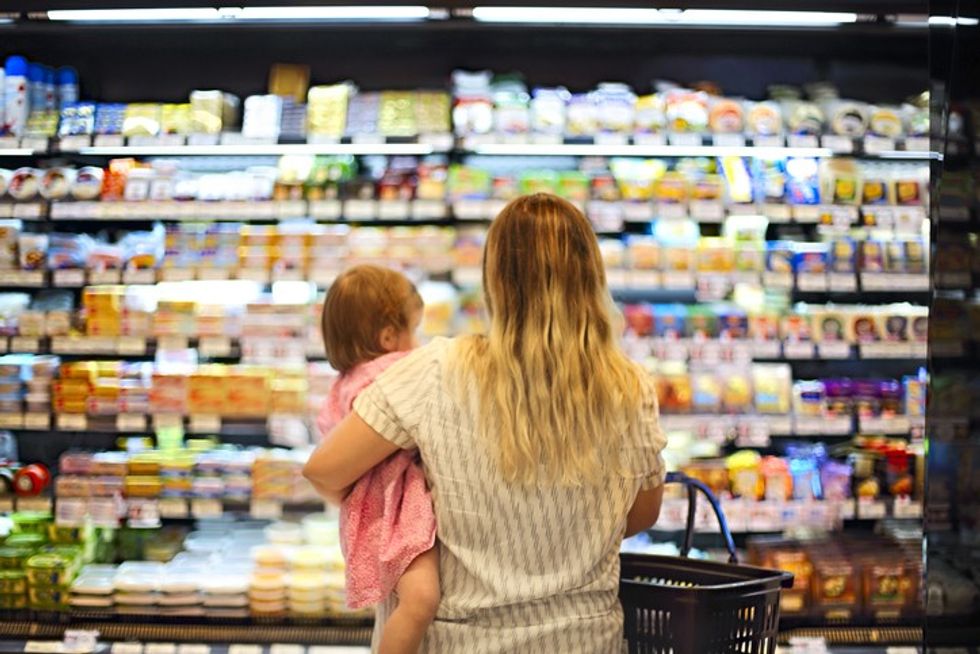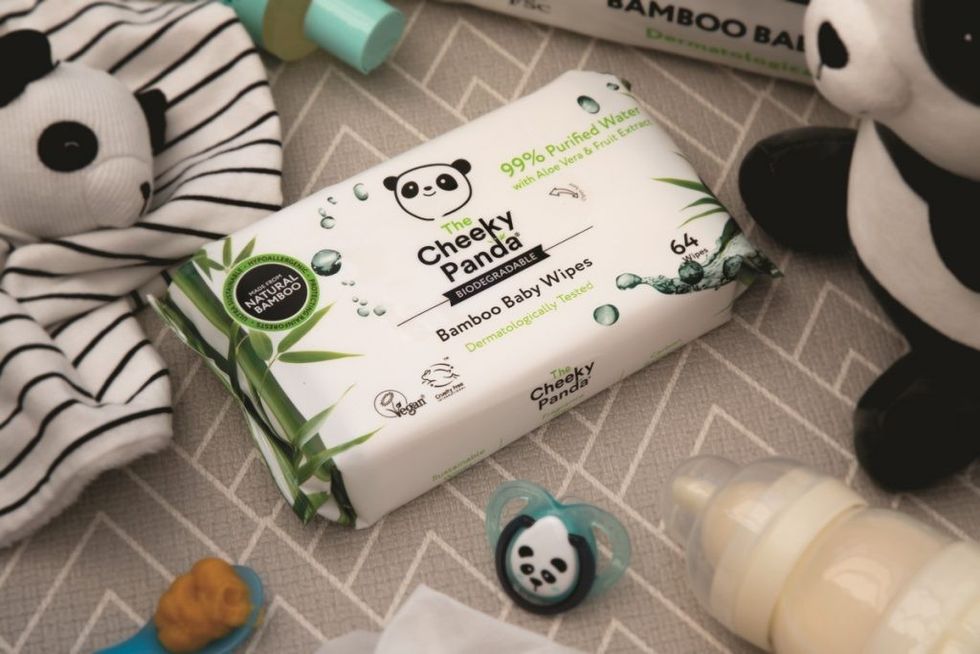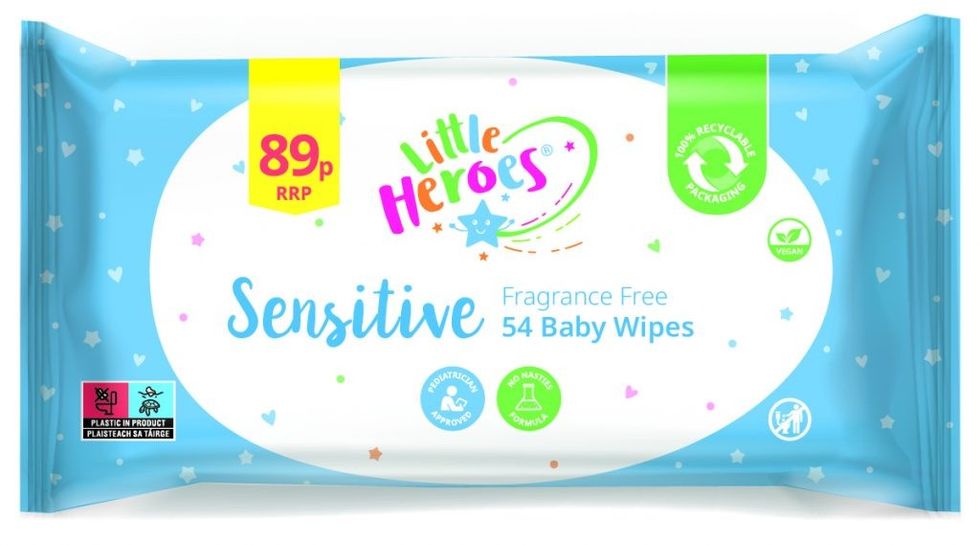As local stores have increased in importance over the past few years with the pandemic and the wider trend towards shopping and living more locally, the baby products category has emerged as one where a well-stocked and -curated range can be a very good revenue earner for independents.
Baby wipes, baby food and children’s medicines are three sub-categories that are growing faster in the convenience channel than the total UK market (see Table), and the channel’s share of the total UK market in each category, except for baby food, is greater than its share of total UK grocery market (1.6 per cent, Kantar). Essentially, the baby products category is becoming a well-performing section in the local stores, with plenty of room for growth.
This is a category where macro trends, such as falling birth rates, exert significant influence. Unsurprisingly the market for baby care products saw ups and downs since 2010, and the market value of the baby care industry in the UK has been on decline since 2018, with the retail sales value going down from £1.52 billion in 2018 to £1.40bn in 2020, according to a report by market researcher GlobalData.
The numbers show there are plenty of opportunities for enterprising retailers in the baby and toddler category.
The convenience channel is over-indexing the wider market when it comes to growth in baby wipes, baby food and children’s medicines, and the channel’s share of the total UK market in each category, except for baby food, is greater than its share of total UK grocery market (1.6%, Kantar 12w/e 16.04.23).
| Category | Size, Symbols & Independents | Growth (YoY) in Symbols & Independents | Size, Total UK market | Growth (YoY), Total UK market | Share of Symbols & Independents |
| Nappies1 | £6.4m | +3% | £389.0m | +7% | 1.64% |
| Baby wipes2 | £9.6m | +21% | £190.8m | +10% | 5.03% |
| Baby Toiletries3 | £2.3m | -10% | £109.3m | -3% | 2.10% |
| Baby Milk4 | £11.4m | +2% | £342.6m | +7% | 3.32% |
| Baby Food5 | £4.1m | +17% | £307.9m | +6% | 1.33% |
| Children’s Medicines6 | £12.6m | +55.8% | £165.9m | +43.7% | 7.59% |
Sources:
- 1: IRI – Diapers– Symbols & Independents (MAT Jan 2023) and Total UK (MAT Feb 2023)
- 2: IRI – Baby & Kids Wipes– Symbols & Independents (MAT Dec 2022) and Total UK (MAT Feb 2023)
- 3: Nielsen– Impulse and Total Market (MAT 18.06.22)
- 4&5: IRI – Baby Feeding Total– Convenience GB excl. Major Mults and BT SD WL and All Outlets GB incl. Chemists (52w/e 25.02.23)
- 6: Nielsen– Impulse and Total Market (MAT: 08.10.22)
However, there could be some positive impact in the category in the near future, which has already become visible in the recent market data, as most sub-categories are showing year-on-year growth. For the first time since 2015, the number of live births in England and Wales increased annually in 2021, rising by 1.8 per cent from the previous year. This is of course mainly due to the pandemic impact on people’s decisions to become pregnant in early 2020,which led to lower births in the year, as the 2021 figures is still lower than the number of pre-COVID-19 births in 2019 andin line with the long-term trend of decreasing live births.
But, there is another pandemic trend that could prove more significant to the category. The total fertility rate (TFR) increased to 1.61 children per woman in 2021 from 1.58 in 2020; the first time TFR has risen since 2012.
While fertility rates increased overall, younger age groups saw declining fertility rates while older age groups saw fertility rates increase. The largest decrease was seen among those aged under 20 years (16 per cent), whereas older women, aged 35 to 39 years, saw fertility rates increase by five per cent.

Having children later in life means parents with greater spending power, and coupled with the rise of working mothers, the baby care category is poised to witness a pronounced shift. In April to June 2021, three in four mothers with dependent children (75.6 per cent) were in work in the UK, reaching its highest level in the equivalent quarter over the last 20 years (66.5 per cent in 2002), according to ONS figures. The employment rate was higher for mothers than either women or men without dependent children and has been since 2017.
The UK Families and the Labour Market 2021 report by the ONS, published in July last year, also found that from 2020, in families where both parents are employed, it has become more common for both parents to work full-time, rather than a man working full-time with a partner working part-time.
Personalised service
With more demands on their time, working parents would be looking for quality baby care products at convenience, and local stores should be looking to recruit them to their loyal customer base, by just doing what they do best, adding that personal touch to their service. By offering expert advice, personalised recommendations, and exceptional customer service, independent retailers can build strong relationships with their customers and create a loyal following.
“The proportion of full-time working parents is on the increase, so families with young children have less and less spare time. Product quality is a key driver for baby care shoppers, and many are brand-loyal,” commented Matt Stanton, Head of Insight at DCS Group.
Young families spend significantly more than the average grocery shopper, so attracting these shoppers will help grow the sales, he said, adding that: “Less than half of their extra spend is on the baby categories themselves, so these shoppers will help you grow sales across your whole grocery range.”
Three numbers to keep mind
- Young families with children spend 38% more than the average UK shopper (IRI, 52w/e 18.01.20)
- 62% of baby care shoppers will move to another store when they can't find their usual brand (MSL Study, Danone)
- 86% of families with young children plan shops in advance at stores they know stock their brands (Shopper IQ Advantage Data)
Stanton also stresses that baby care shoppers are amongst the most brand loyal. “When these shoppers cannot find their usual product on shelf, 62 per cent of them will switch to another store… and they will take their entire basket with them,” he says. “Brand loyalty is even higher on baby milk specifically, where 70 per cent of shoppers would rather switch to another store than switch to a different brand.”
Offering the one-stop shop is also key to retaining the baby care shoppers, as shoppers generally are still making fewer shopping trips compared to before the pandemic, looking to get as much as they can all in one place.
“What is more, families with young children are busy, and 86 per cent of them plan their shopping missions in advance, so they will plan to shop in store they know stocks their usual brands,” Stanton adds.
Alex Winyard, UK FMCG Sales Manager at The Cheeky Panda, points to the impact of the cost-of-living crisis, but notes that baby products is an area where shoppers aren't always willing to compromise on quality and look for value options.
“The most recent data shows that while own and value label products are increasing in market share, this still only makes up about 30 per cent of total market value/volume. Ensuring your offering has a range of both branded and value lines is key to sales success,” he adds.
He highlights the need to understand the customer-base and their shopping habits and needs, adding that: “C-stores in particular should cater for top-up sales rather than bigger bulk and multi-pack formats.”
Sustainable and sensitive
Parents make specific journeys to buy nappies, more so than in many other categories, and they tend to visit a store they know has their usual product or brand in stock.
“For baby nappies shoppers, preventing unexpected nappy leaks is high on the agenda because of the inconvenience, disruption and discomfort a leak can cause. With this in mind, product quality is of paramount importance and shoppers will buy a product or brand that they know they can trust,” Stanton explains.
He notes that the biggest trend in the nappies market is the shift from taped nappies into untaped or “pants”.
“For very small stores, taped nappies are still the core recommendation, but if you have enough space, you should definitely range pants alongside the regular taped nappies,” he suggests.
Winyard highlights the growing demand for baby products that are eco-friendly and sustainable.
“Shoppers are growing increasingly aware of the need to buy sustainable options and are looking for products that are kind to the planet and their skin. In fact, 82 per cent have tried to be more sustainable with their consumption habits, and 63 per cent of shoppers look for products which are kind to sensitive skin even when used repeatedly,” he notes.
The Cheeky Panda offers a range of babycare products which can tap into both of these consumer needs. Made from FSC certified sustainable bamboo, the range includes nappies (in five sizes) and biodegradable wet-wipes. The nappies are dermatologically tested, Vegan Society approved and offer up to 12 hour dryness and leak protection. The wet-wipes are 99 per cent water, contain no plastic or harsh chemicals and are fully biodegradable. They have also been certified by FSC, Vegan Society and Cruelty Free International.
Accrol Group, a Lancashire-based leading tissue converter supplying toilet tissues, kitchen rolls, facial tissues, and wet wipes, has successfully launched its range of baby wipes with Unitas wholesale, offering independent retailers the opportunity to stock a high-quality product at a competitive price point.
Ashley Taylor, Sales Director for Accrol Group, said their Little Heroes Sensitive baby wipes have the same claims and credentials as market-leading brands, at a more attractive price point, making it a must-have for all independent retailers.
The price-marked packs communicate better the price and value position that shoppers desire while maintaining strong margins for retailers.
“Consumers shouldn’t have to hold back from buying great value daily essentials till their next supermarket ‘big shop’,” Taylor says. “They should be able to access great products at a great price from their local convenience retailer. That’s why I’m thrilled to bring Little Heroes Sensitive baby wipes to the convenience market.”
Little Heroes offers baby wipes that have been approved by paediatricians, dermatologists and gynaecologists making them safe for people of all ages to use, including babies and those with sensitive skin.
In addition, all packaging is 100 per cent recyclable and can be recycled alongside plastic bags at stores, making it easy for consumers to dispose of them responsibly. They’re also made right here in the UK.
Mark Warriner, Senior National Account Manager for wholesale at Accrol, adds: “Increasingly convenience retailers are choosing to stock Accrol brands making them more readily available to UK consumers. They’re proving to be popular and the introduction of Little Heroes Baby Wipes into this channel further demonstrates this.
Accrol’s branded product rang include Elegance Toilet Tissue, Magnum Kitchen Towel and Softy Facial Tissue.
It is so important to stock a comprehensive core range of baby care products, but independent retailers can also look to specialise in a particular area within the baby products category, such as organic and natural products, sustainable products, or personalised items. By offering a unique selection of products that meet a specific need or interest, they can differentiate themselves from larger competitors and attract a loyal customer base.
Independent retailers can also offer a carefully curated selection of products that meet the needs and preferences of their local customer base. By understanding the specific needs and preferences of their customers, they can offer a selection of products that are relevant, high-quality, and tailored to their customers’ tastes.




